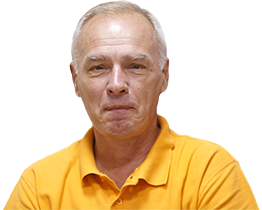At the European Parliament's plenary session in Strasbourg, a resolution was recently adopted on the situation in the Sea of Azov, which contains a few provisions important for Ukraine. First of all, it should be noted that any document of such a level adopted by such a high profile body as the European Parliament, is independently significant. Therefore, the resolution itself is really important for Ukraine as it reflects the position of an authoritative international organization, which, moreover, is entirely on Ukraine's side.
In this resolution, the European Parliament called on EU member states to be prepared to strengthen sanctions against Russia in the event of an escalation in the Sea of Azov. We all wish that no aggravation takes place in the Azov region and gradual de-escalation ensues. However, to my great regret, anything can happen, and the crisis may at any moment jump into its acute phase.
Firstly, the European parliamentarians say they are concerned, and secondly, they show that they don't yet believe that the process will move into a constructive dialogue aimed at reaching a compromise. But I'd like to remain a restrained optimist. I think that as early as in the first half of November, there may be signs that the process is moving toward de-escalation, at least of from the level of tensions we are seeing today.
The point of view has already matured in Europe, gaining more and more supporters, that Russia sanctions need to be loosened
The resolution also acknowledged that the Kerch Strait Bridge had been constructed illegally, and it was noted that sanctions could be imposed against the six companies involved in the construction. Will those sanctions ever be introduced? There may be different options. The point of view has already matured in Europe, gaining more and more supporters, that Russia sanctions need to be loosened, not intensified... However, there are other grounds for strengthening sanctions against Russia, and it is not necessary to cling to the Kerch Strait Bridge issue.
But now it will be difficult for Europeans to agree on the introduction of new sanctions. In particular, the Italian prime minister has already explicitly stated that they would not benefit from prolonging sanctions against Russia and that they would raise the issue of relaxing these sanctions. Therefore, I don't think we should expect from Europe any additional sanctions on Russia. The already existing ones might not be reviewed, but new ones are unlikely to appear.
In addition, the European Parliament has called for the appointment of an EU Special Representative for Crimea and Donbas, who, inter alia, is also to monitor the situation in the Sea of Azov. This move has long been on the table. After all, there is Kurt Volker representing the U.S. State Department while there is no envoy from the EU… However, at the same time, Europe, in the person of France and Germany, is involved in the Donbas settlement process, that is, in the Normandy Four talks. So there is no doubt that such a special representative will actually appear. And he, in my opinion, such envoy could move from a dead end a whole range of issues. Of course, no special representative is able to be a substitute for state leaders (of Germany, Russia, and France), but such an official could set up all preparatory work, develop and offer certain solutions that would be a step forward in the peaceful settlement. In my opinion, this is a promising move, which, under certain circumstances, could have positive practical consequences.
I have doubts that this resolution will have any practical consequences because all the resolutions are advisory and don't foresee any practical steps to be taken right away. So far, the resolution has been approved – full stop. The document does not provide for any specific steps.
However, Russia's actions in the Sea of Azov are in fact concerning Europe, since more than a third of the ships inspected by the Russian side in this sea were EU-flagged. This is important for Europe, this is a real sore point.
But what exactly will the action be? Perhaps, negotiations will start at the level of legal entities, perhaps at the level of certain statesmen, leaders of a certain European state, who maintain contact with President Putin. That is, an Italian or an Austrian, an Hungarian or a German can take on an intermediary function. But this will be an independent process.
Meanwhile, Russia has its own perspective on the Sea of Azov. Its approaches are diametrically opposed to European ones. Moscow can only repeat its position that it sees the Resolution as wrong.
Perhaps early next week, the Russian side will comment on the issue of the European special representative post. I don't rule out that Moscow, after a thorough elaboration, might as well welcome the idea, acting "nice" before the EP and showing that it is seemingly ready for some constructive work.
Pavlo Rudiakov is a head of the Perspektiva information and political center


